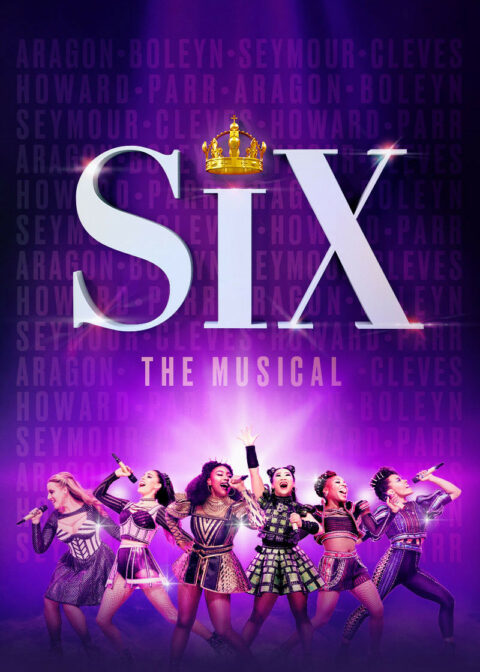New York State and NYC often considers taxing Broadway tickets, but it never actually passes. Will Broadway show tickets always remain tax free or is the Broadway sales tax coming soon?
Broadway Has Avoided the Looming Threat of a City and State Sales Tax, But For How Much Longer?
If you thought the Ticketmaster and Telecharge surcharges were inflating the already high Broadway ticket prices too much, what if there was a state tax tacked on those ticket prices to boot? Considering that most commercial goods, especially those of the luxury variety, are taxed, it's actually a bit surprising that Broadway tickets don't require buyers to pay taxes. However, it isn't for a lack of trying on the part of New York State.
BROADWAY TAX PROPOSALS - WHAT NEW YORK CITY COULD GAIN IN REVENUE
Every so often, New York trots out the idea of taxing Broadway tickets. The most recent threat was when New York governor David Paterson included a Broadway tax in his 2009-2010 Executive Budget. The budget included proposed taxes on movies, concerts, and cable TV in addition to live theatre, citing the fact that many other states tax entertainment expenses (at the time, 31 states were taxing theaters).
Both New York State and New York City would have a lot to gain from adding a tax to Broadway tickets. Broadway routinely brings in $20 million in weekly revenue (and often more), making it a very tempting taxation opportunity. Approximately $850 million could be generated in just one year of taxing Broadway show tickets, a hefty sum that could go a long way to helping the state with its yearly budgetary needs, from education to health care.
THE OPPOSITION - WHAT BROADWAY COULD LOSE
Despite the benefits, when the Broadway tax was proposed in 2009, a fierce wall of opposition rose up right away. The entire industry was against the tax and passionately argued for its defeat. Theater owners, actors, union members, and producers, a group that is not always known to act in unison, were among those who united to lobby for the proposed tax to be eliminated from the budget. With the likelihood of the taxes amounting to as much as an additional 8% (4% from the state, plus a probable additional 4% from NYC) to the admission price of a show, ticket buyers would be looking at paying an extra $10 for a $120 ticket.
Opponents of the tax argued that this hike would discourage ticket sales and lead to more Broadway shows closing. Even a New York Assembly member, Richard L. Brodsky, got in on the opposition, arguing that Broadway has not had the advantage of the public assistance that sports team have gotten, nor the private donations that major institutions like the ballet and orchestras receive.
As International Alliance of Theatrical Stage Employees (IATSE) president Matthew Loeb aptly put it, "A show doesn't downsize. It's dead. That means the lights go off, the workers go home, no more tickets get sold - or taxed - and unemployment claims get filed."
Fortunately the tax on Broadway, as well as the other entertainment taxes, were eliminated when federal funding came through. When it was announced that the proposed cuts would be dropped, Charlotte St. Martin of The Broadway League stated, "Higher ticket prices could be devastating to our industry. We are grateful that the government recognized our concerns and took decisive action to eliminate additional financial burdens on theatre patrons. It is a positive reflection of our collaborative efforts to maintain Broadway as the No. 1 generator of tourism dollars in New York City." Broadway Times Square
WHY A BROADWAY TAX MAY NEVER PASS
Proposals to tax Broadway tickets are certain to come up again in the future, but they are also almost certain to never pass -- at least as long as Broadway remains one of New York City's biggest and brightest tourist attractions. What is bad for Broadway is bad for NYC tourism, and New York would not be willing to risk hurting overall Broadway ticket sales. Not only would it hurt the theater industry, but there would also be a great deal of collateral damage.
Much of the damage would be directly related to the tourism industry, depleting business to numerous theater district restaurants and hotels. Then of course there would be far less work for the many costume makers, dry cleaners, carpenters, and other skilled professionals whose talents and businesses support Broadway productions.
In an editorial published on the website MusicianWages.com, Ethan Fein, an executive board member of Local 802, the American Federation of Musicians, wrote, "An important reason this kind of tax is not good for the state, besides the obvious reasons of having people working who would otherwise be unemployed, is that when people come to a Broadway show they do other things, like eat dinner, take taxis, stay in hotels, sometimes making a trip to New York a vacation. All these activities charge state sales taxes. If the ticket price discourages someone from coming to New York, all these other taxes are lost. It is pretty well agreed that this “multiplier effect” is real, and means a great deal of money to the city and the state."
If there is any doubt that what Fein says is true, he also points out that both New York State and New York City lost a lot of money when there was last a strike on Broadway, so there is plenty of evidence to show that hotels, restaurants, bars, retail stores, specialty shops, and tourist attractions really do suffer when Broadway suffers.
As the Broadway League's Charlotte St. Martin put it in a statement, “When Broadway is damaged, New York is damaged.”


